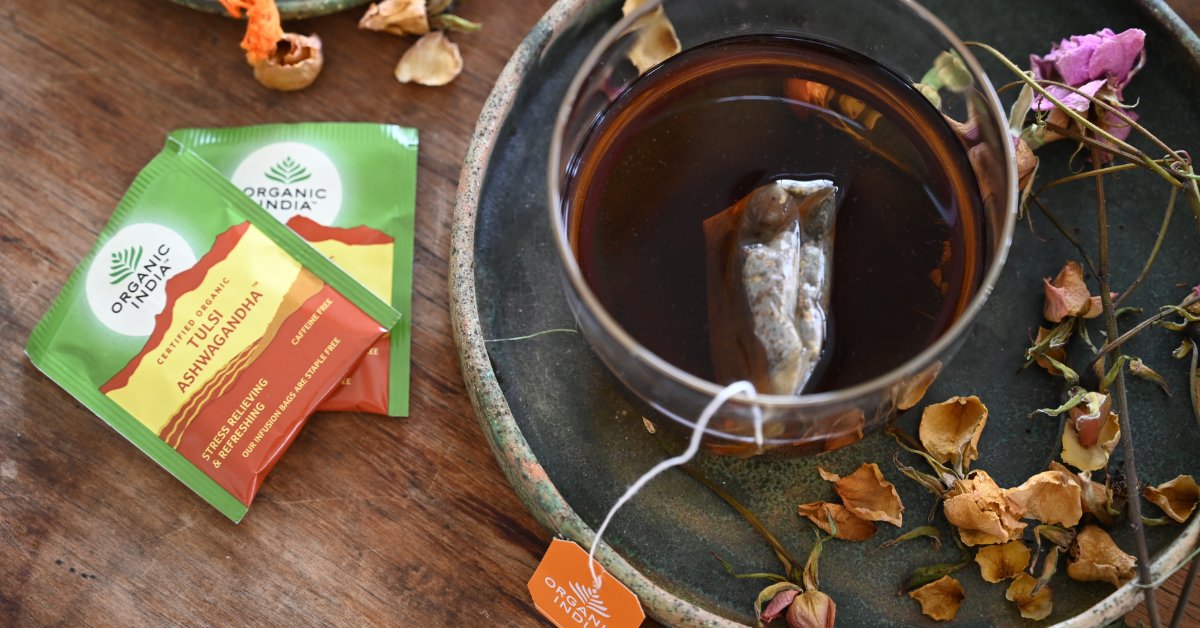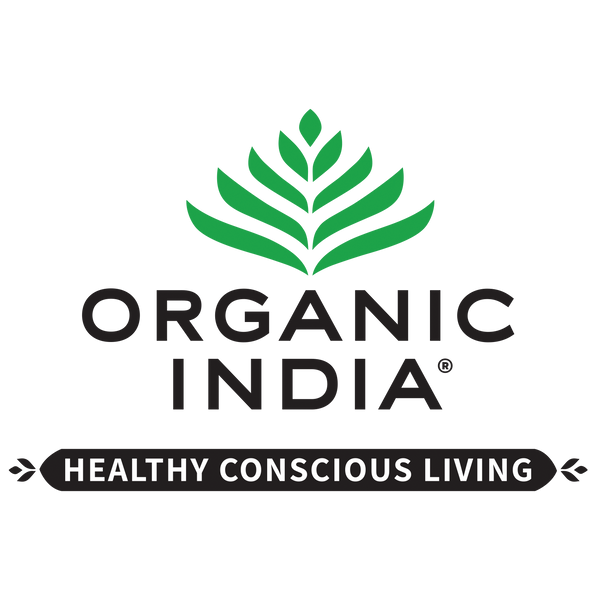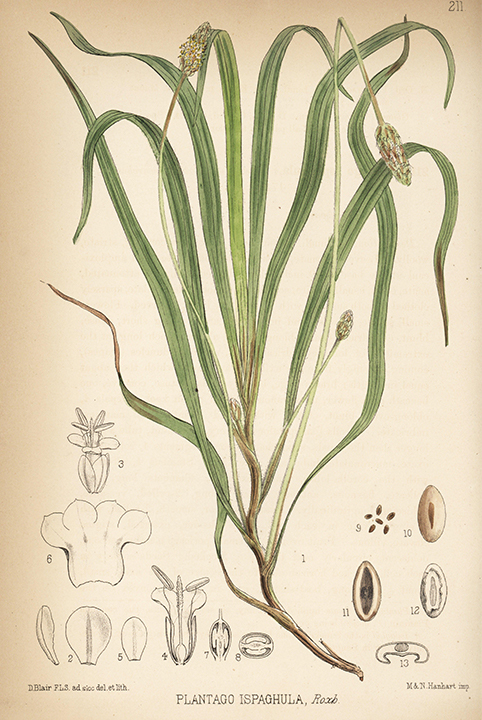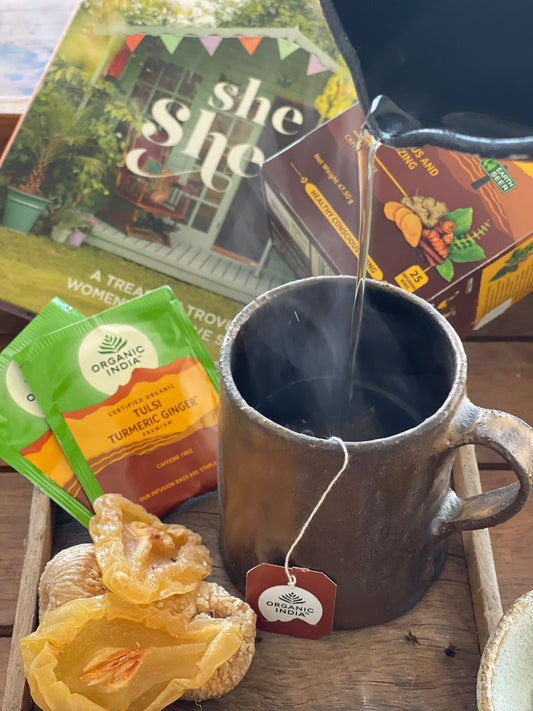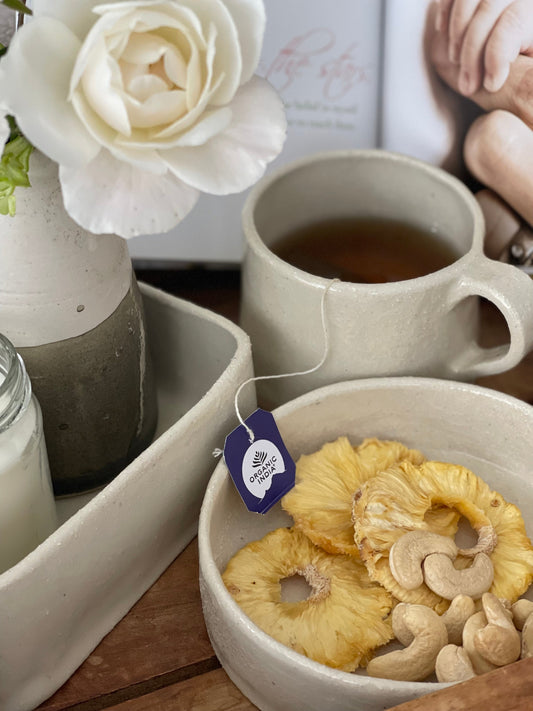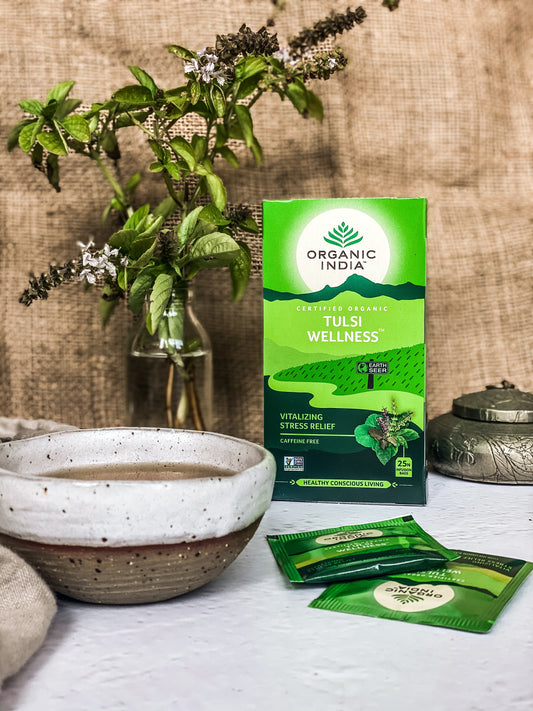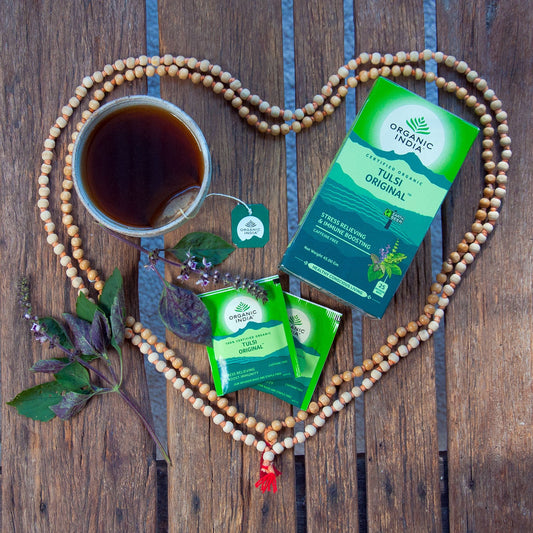Psyllium is made from the husk of the seed of the plantago ovata crop, and has been long used as a supplemental source of dietary fiber. The plantago ovata crop, also known as desert Indianwheat and blond plantain, is a shrub-like herb native to the Mediterranean. Psyllium is a soluble and insoluble prebiotic fiber commonly found in powder form to be added to liquids or in dietary capsules for a concentrated dose.
Best known for its ability to provide digestive support and a gentle laxative action, it is also linked to heart health and helping maintain healthy cholesterol levels. Psyllium is an example of a cherished Ayurvedic plant that has gained wide acceptance in Western practices, and is actually the main ingredient in the popular over-the-counter laxative MetamucilⓇ.
Psyllium husk is a soluble fiber, meaning that it absorbs many times its weight in water, swelling into a gel-like mass. Because of this characteristic, it can be used in vegan baked goods as an egg replacement.
What sets ORGANIC INDIA Psyllium apart?
ORGANIC INDIA takes every avenue to operate in a way that is Beyond Sustainable, for both the planet and the amazing partners we work with. Our Psyllium is grown, harvested and prepared in adherence to the following principles and practices:
- Small Family Farmers. Ethical partnerships are the heart and soul of our company. We contract with small, family-owned farms across India and purchase crops at premium market price. Most of our partners have been with us for more than ten years, and each is an integral part of our herbal family. As indispensable members of our team, we provide all of our farmers health insurance and ongoing training by agricultural experts who are at the cutting edge of organic and regenerative farming—a no-brainer for us, but an unfortunately unheard of practice in the industry.
- Regenerative Agriculture. We are deeply rooted in agriculture that is beyond sustainable—it’s regenerative. What this means is our farming practices not only preserve the land, they make it better. Regenerative means replenished soil, improved biodiversity, enhanced water conservation, and increased carbon sequestration. We look beyond our crop to the whole earth and our responsibility to it as a healthy conscious living company.
- Sustainable Production. All of our herbal teas and supplements are produced in our LEED Platinum certified production facility in India, which is a marvel of top-tier sustainable design, construction and operations.
Psyllium Benefits for Body and Mind
The benefits of dietary Psyllium have been confirmed by numerous studies — when the indigestible fiber turns to gel in the GI tract, it serves to regulate cholesterol, triglycerides, and blood sugar levels. Because of this bioactivity, Psyllium is known to promote heart health and support healthy blood sugar levels.
- Digestive Support. As psyllium fiber enters your stomach it becomes a viscous gel that helps smooth digestion and support gastrointestinal function.
- Waste Elimination. Psyllium is considered a gentle, bulk-forming supplement that absorbs liquid in the intestines, which aids in healthy elimination and regularity.
- Prebiotic Source. Psyllium is a natural prebiotic, which promotes growth of beneficial microorganisms and supports gut health.
- Satiety. It’s found to help increase feelings of satiety, or fullness, helping curb hunger between meals.
- Heart Health. A fibrous diet is known to support heart health and help maintain healthy levels of cholesterol.
- Blood Sugar Regulation. When psyllium becomes a gel it also traps sugars and releases them more gradually as it moves through the body, which can support healthy blood sugar levels.
- Gluten-Free. It’s gluten-free, which assists anyone with gluten sensitivity in getting the amount of daily fiber they need.
Traditional Significance of Psyllium
Before it hit the shelves as a popular bulk forming laxative worldwide, Psyllium was a natural remedy for digestion in India for 5,000 years. It was long used in Ayurveda as a cooling, gentle colon cleanser. In ancient Indian texts, the plant was referred to as Asvakarna. Asva translates to horse and karna to ear, so the word means horse ear, referring to the horse-ear shape of the seed. The plant also has history in Persia, where it is known as Isabgol or Ispaghula, which translates to ear of horse solution, again referring to the seed and its beneficial properties.
Where is Psyllium grown?
ORGANIC INDIA Psyllium is sourced from the fields of Rajasthan, a state to the northwest of India. It also grows in the coastal Gujarat region just south of Rajasthan. The plant is native to India and other parts of Asia, as well as areas of the Mediterranean and North Africa.
Who is it For?
Psyllium is safe for anyone looking for gastrointestinal comfort and regularity. Simply add a teaspoon to smoothies, oatmeal, juice or water for a quick burst of gentle digestive support. This gentle fiber has been found to be safe for children and pregnant women as well, but be sure to discuss with your doctor before adding psyllium to your diet.
Psyllium for Healthy Conscious Living
ORGANIC INDIA’s Psyllium is organically grown according to ancient Ayurvedic regenerative cultivation practices to ensure the highest possible efficacy, or “prana.” All ORGANIC INDIA herbs are processed and tested in compliance with FDA and World Health Organization safety protocols.
At ORGANIC INDIA, we recognize the vast interconnectedness of life. From seed, to soil, to field, to factory, our products empower the farmers of India, promote environmental and economic recovery, and provide wellness solutions derived from nature’s intelligence.
